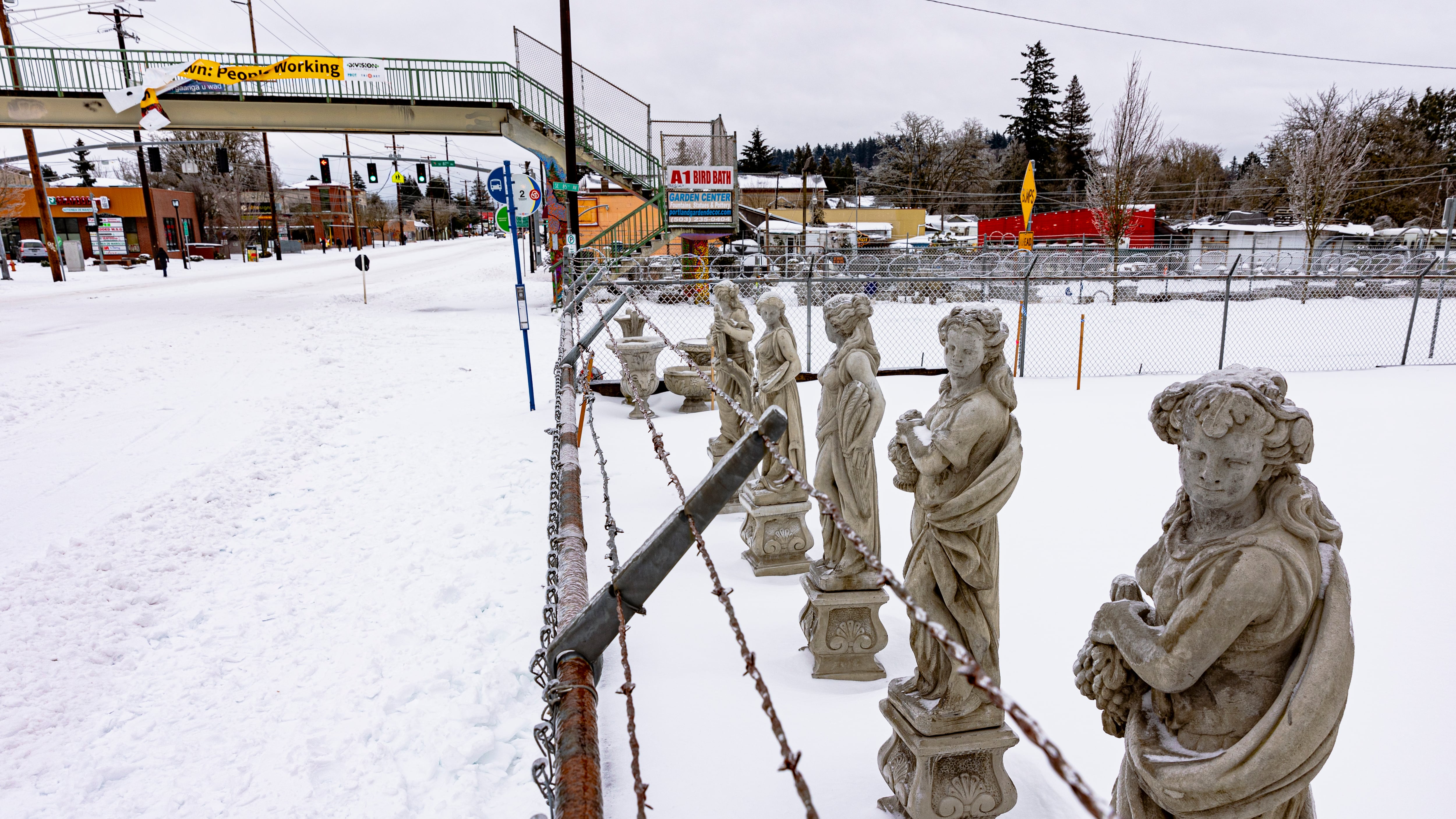On Friday, the Portland Police Bureau announced the formation of an investigative team with a 24/7 on-call unit called the Enhanced Community Safety Team to lower record-breaking levels of gun violence in the city.
The team, established at the direction of Mayor Ted Wheeler, responded to its first call on Feb. 18, according to Deputy Chief Chris Davis. The group's creation falls in the wake of historically high gun violence in the city: 2020 saw 55 homicides and about 900 shootings.
Related: Gun Violence Spikes in Portland's East Precinct
So far in 2021, there have been 144 shootings in Portland and seven shooting-related homicides, according to Sgt. Kevin Allen. Forty shooting victims have sustained non-fatal injuries, he said.
The inception of the new unit comes nearly eight months after the Portland City Council defunded the Gun Violence Reduction Team in June amid racial justice protests and a $15 million cut to the bureau's budget. The program, which involved proactively patrolling the streets of Portland, faced criticism for disproportionately targeting people of color, specifically Black men.
As the GVRT was dissolved, gun violence in the city began to spike last summer—an increase experts say stems in part from COVID-19-related job losses and from a lack of law enforcement coordination. Davis said it has taken the bureau eight months to come up with a solution because the GVRT disbanded at a time when the bureau was strapped for cash, both because its budget was cut and because officers were staffing racial justice protests.
While Mayor Ted Wheeler had openly pondered restoring the GVRT, the new unit does not appear to be a direct replacement.
The ECST will consist of three sergeants, six detectives and 12 officers. The unit will focus primarily on investigating and reacting to shootings, as opposed to proactive policing, Davis said. The goal, he said, is to get repeat gun violence offenders "off the street."
The ECST will work directly with a patrol unit, Davis said, to conduct immediate investigations in order to follow up on leads more quickly than usual. As a result, the team should free up patrol officers.
Davis said Friday that a small group of "repeat shooters" tend to be responsible for a disproportionate number of gunfire incidents in Portland.
"Often, there is a small number of people who are involved in lots and lots of these incidents," Davis said, "and so working on tying all of those cases together and holding some of those repeat offenders accountable will make a bigger impact on the problem."
The bureau anticipates the ECST will cost about $350,000 a year. Davis said the 24/7 on-call unit—which will consist of one sergeant, two deputies and four officers—is a significant factor in the program's cost. Davis said the bureau is still working with the City Council and the mayor's office to determine how to fund the program.
"It is a little more than we have in our budget right now," Davis said. "We didn't want to wait because of the urgent need."
Allen said Friday that the bureau wasn't "reinventing the wheel" with the inception of the ECST.
"We're just focusing a team of investigators on this one issue because of its level of priority," Allen said.
On Friday, Wheeler issued a statement saying he had instructed Portland Police Chief Chuck Lovell to form a unit that responds to shootings that result in injury or death.
"I want to be clear. I see what others see; too many people being shot and killed in our community. I am deeply impacted by the loss of life and the trauma plaguing our community. Immediate action is needed," Wheeler said. "Gun violence is a public health crisis. We are taking a holistic, evidence-based approach with our local, regional, state and federal partners."

